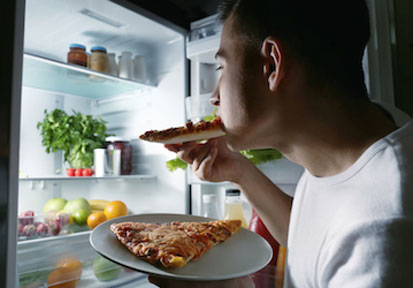 You might be familiar with the impact of poor sleep on your daily routine—feeling drowsy on your drive to work, trouble concentrating or focusing on tasks, or limited patience for your family when you come home. But what about your weight? Sleep plays a role in metabolism, appetite, and even your food choices. Ultimately, sleep impacts your weight and your chance of becoming overweight or obese. When you’re in the military, your career can be affected if you’re overweight or obese.
You might be familiar with the impact of poor sleep on your daily routine—feeling drowsy on your drive to work, trouble concentrating or focusing on tasks, or limited patience for your family when you come home. But what about your weight? Sleep plays a role in metabolism, appetite, and even your food choices. Ultimately, sleep impacts your weight and your chance of becoming overweight or obese. When you’re in the military, your career can be affected if you’re overweight or obese.
Sleep is vital to restore your body and mind. Your circadian clock is in charge of your 24-hour sleep/wake cycle. When you don’t sleep well or enough, your circadian clock is off, impacting how you metabolize and digest food.
What’s sleep got to do with it?
Less than optimal (under 7 hours) sleep is strongly linked to weight gain and obesity. Poor sleep can lead you to crave and eat “energy-rich” foods such as fats and simple carbohydrates, eat less vegetables, and have irregular eating patterns. The relationship is complex, but possible factors include:
- Increased craving for foods and appetite changes → eating more food, especially high-calorie foods and snacks
- Longer time awake → more time and opportunities to eat, especially carbohydrate- and calorie-rich snacks
- Poor timing of eating → eating later in the evening when your body doesn’t metabolize and digest as efficiently
- Feeling more tired → less likely to exercise
- Changes in hunger and fullness hormones → increased hunger
Bottom line
What you eat can impact your sleep, but sleep can impact what and how much you eat, adding on the pounds. If you need another reason to get a good night’s sleep, consider this: Lack of sleep can increase your risk for being overweight, negatively affect your health, and possibly have negative consequences on your military life. Follow these sleep strategies to optimize your sleep and reach your weight and fitness goals.
Learn more at our “Get into Fighting Weight” guide.
